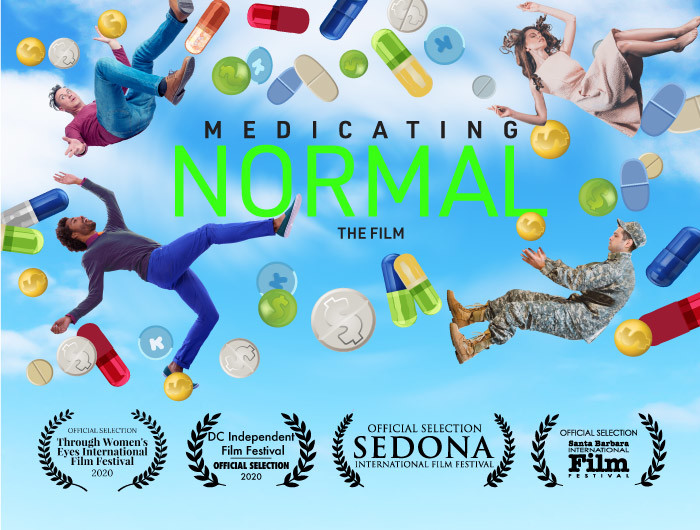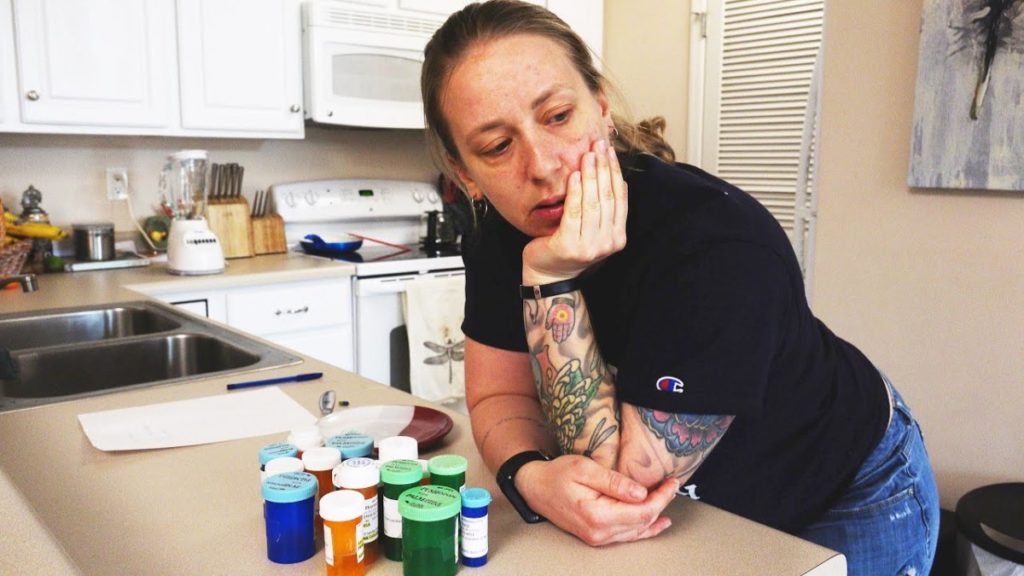Medicating Normal
Over 7 Million children under the age of 18 take prescribed psychiatric drugs. The pharmaceutical industry spends billions of dollars marketing their psychiatric medications. Only two countries allow television ads for pharmaceuticals, America is one of those. One in five Americans take these drugs daily, and often for many years. Food Integrity Now spoke with Lynn Cunningham, co-director/co-producer of the film Medicating Normal which addresses this dilemma. The film shines a light on the pharmaceutical industry’s common practice of hiring ghost writers for their studies and then using “bigwigs” from prestigious universities to put their names on those studies. Their marketing starts with designing a trial that makes their drug look good! Medicating Normal pulls back the curtain on an industry that is systemically broken.
Lynn Cunningham shares how after a close family member, once a high functioning scholar/athlete who graduated from an elite college, was diagnosed with mental illness. Initially, the prescribed medication provided relief and stability, but at what cost? Over a ten year period, one drug became ten, and income from a vibrant, self-sufficient career was replaced with monthly disability payments. Lynn began searching for answers. She joined with her filmmaking partner Wendy Ratliffe, reading countless books, interviewing 100s of psychiatric patients and consulting with scores of experts across the country. Five years of research uncovered data and anecdotal evidence offering a stunning new perspective about mental health treatment.
Medicating Normal is the untold story of what can happen when profit-driven medicine intersects with human beings in distress. The film takes a look at how the pharmaceutical industry wants to disease-ify many life experiences, like anxiety and grief so they can sell their pills to treat it. This is a film to raise awareness to anyone taking these medication or considering taking them. Many well-intended doctors are prescribing these drugs without warning their patients about some of their potential long-term effects, including dependence, suicidality and homicidality.
The film acknowledges that psychiatric drugs do help alleviate suffering for a segment of those who take them. However, it is estimated that of the 1 in 5 Americans taking such meds, 30% to 35% are gravely harmed by the very treatment meant to help them. Medicating Normal focuses on the predicament of this group – individuals facing trauma and stress who are drugged needlessly and made sicker as a result. Interviews with experts in the film reveal that significant numbers of these people will get better over time without medication. The film highlights and follows several individuals, including two veterans, and their journey in getting off these drugs and how their lives have been changed forever. Angie, a veteran, was on 17 different medications between 2006 and 2016. For those drugs she saw several psychiatrists and not once did they say “it could be your medication.”
Lynn spoke about a class of drugs called benzodiazepines, which are commonly used for anxiety, sleep disorders, and other conditions. Xanax is one of those drugs and has been found in studies to increase anxiety. A 1988 study found that after withdrawing from this drug, people got much worse. People who never took Xanax continued improving, down to less than 2 panic attacks on average, while people who took Xanax and then discontinued went up to almost 7 panic attacks each, on average. Overall anxiety also got much worse for the people who’d taken Xanax.
We also talked about the importance of eating a healthy diet in creating better mental health. Food Integrity Now has been educating through many interviews with experts on the brain about the importance of having a healthy gut to have a healthy brain.
This film and interview needs to be shared to raise awareness to assist ones to be aware of the inherent risks in the long-term use of these psychiatric drugs and being an informed consumer!
Listen to our interview here or click on the link below.
To schedule a screening of the film, go here.
Podcast: Play in new window | Download (Duration: 47:05 — 40.0MB) | Embed
Subscribe: Apple Podcasts | RSS




0 Comments